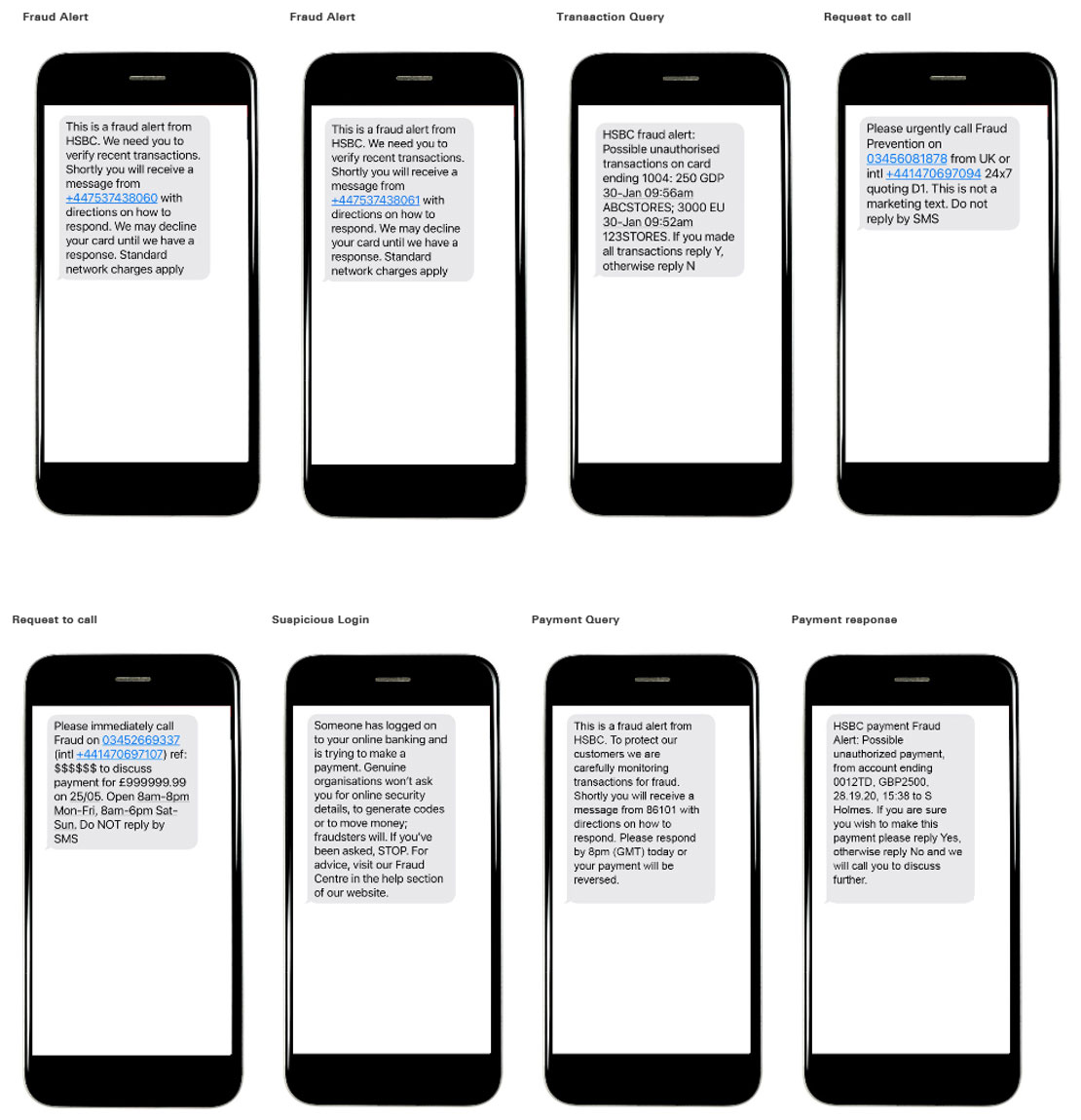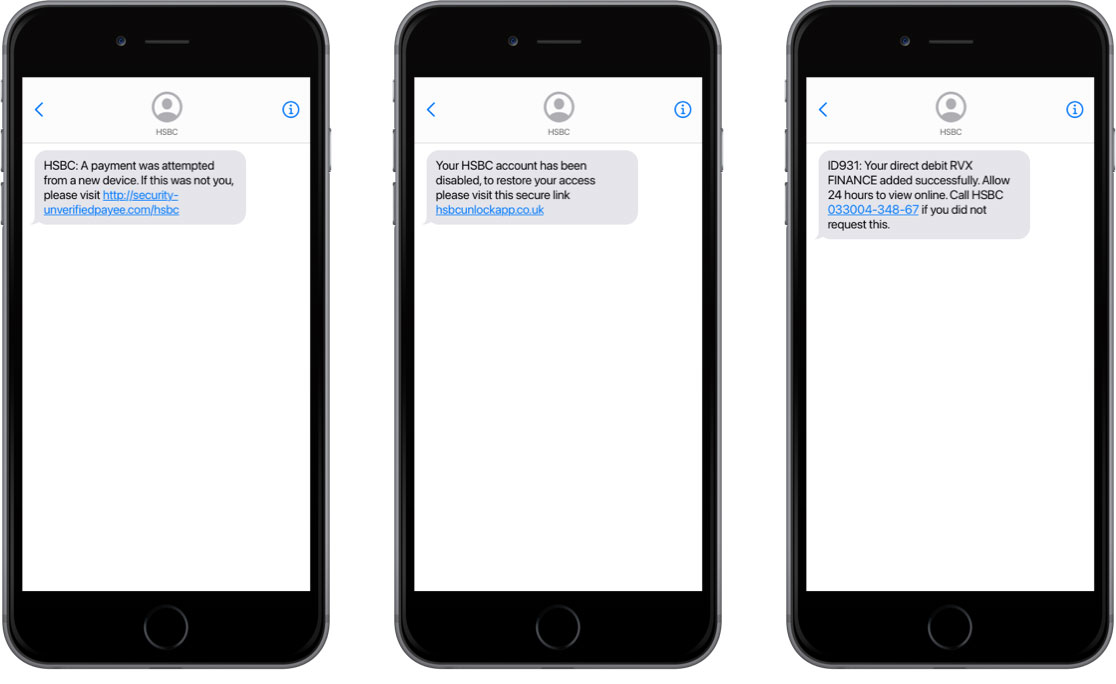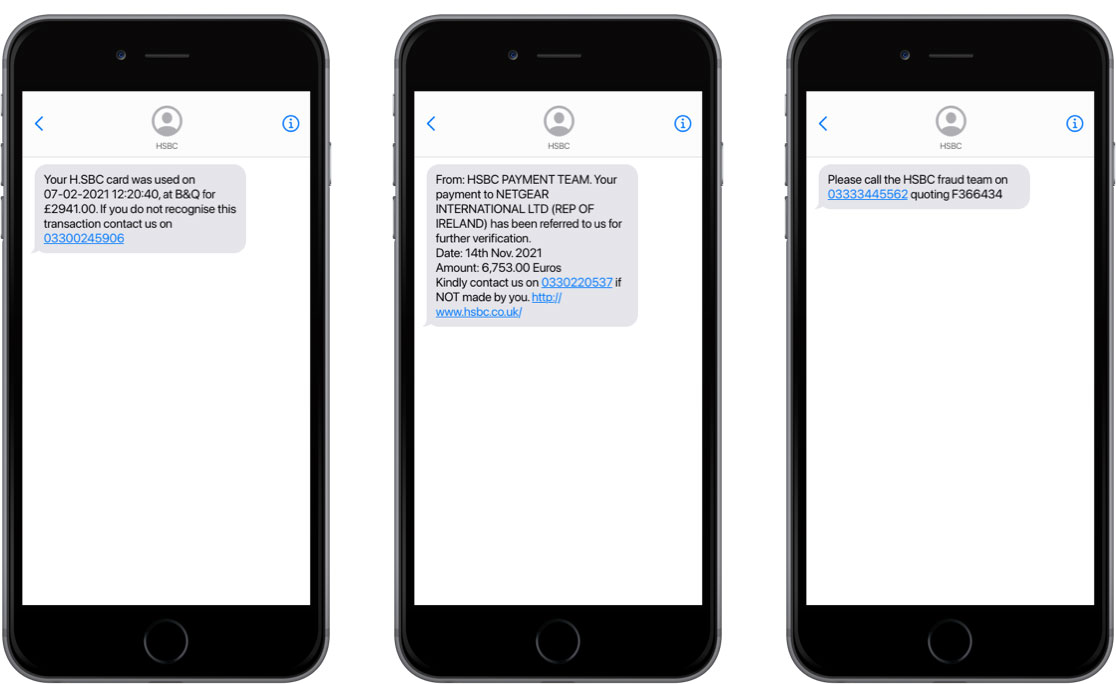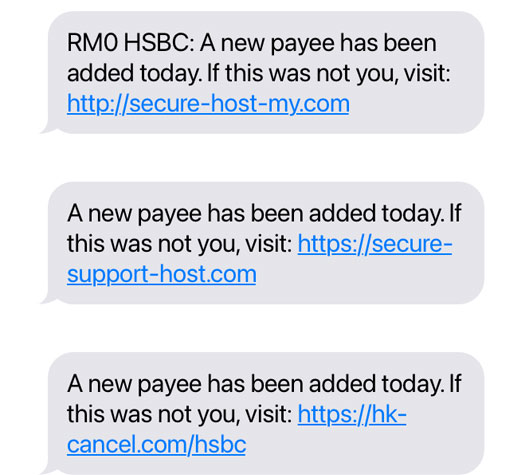If you've received a text message that looks like it may have come from HSBC, have a look here to see if it really did come from us. Criminals have become very sophisticated in enticing you to click on links or call phone numbers that belong to them. They pretend to be an organisation you trust, like your bank, utility company, internet provider or even the Tax Office (HMRC/ESTV/Inland Revenue Department) or the police.
We won't contact you from a normal mobile number other than the examples below. You might receive other texts from us, depending on your marketing preferences. If in doubt, don't respond - call us on the normal number on the back of your card.
If you’ve given anyone your personal or security details, please call us immediately using the number on the back of your debit or credit card.
Things a fraudster might send you
Here are some typical fraudster messages. If you receive something like this, please delete the message and do not respond.
Scammers often send fake text messages that look like they’ve come from your bank, or another trusted organisation. Their goal is to get you to reply with your personal or financial information.
Typically, they’ll:
- encourage you to take urgent action
- ask you to verify new payees, transactions or devices
- look similar to real messages. They may show up in the same thread as genuine messages you’ve received from an organisation
If you've received an SMS, you believe is suspicious:
Don't:
- click on any links
- download any attachments
- reply
Do:
- report the message to us at phishing@hsbc.com
- contact us using the number on the back of your card if you want to check whether the message was genuine
- delete the message

/banner-2023/HSBC%20Global%20Private%20Banking%20-%20Findeln%20Village,%20Switzerland.jpg)



